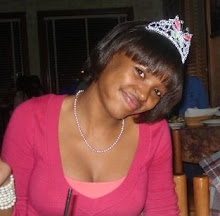It was interesting reading John Stuart Mill’s “Statement Repudiating the Rights of Husbands,” especially when reading it after Robert Browning’s selections about the control men exhibited over their wives. After reading the caption that went along with the statement, I learned that husbands literally had rights to their wives, and once married, women were not able to sign legal contracts or own any property (527). Women were subjected to the status of slaves or children, and I’m sure in some manner or instances they were treated as such, as we may be able to assume after reading Robert Browning.
So with this background in mind, of male dominance over woman, it makes sense that men of that time lost sight of what the institution of marriage was meant to be. Call me old-fashioned, but marriage is the union of two people, not the dominance and control of one over the other. Mills himself understands and acknowledges these virtues of marriage and wants it to be known that he thinks it’s important the woman he intends to marry “retains in all respects whatever the same absolute freedom of action, and freedom of disposal of herself and of all that does or may at any time belong to her, as if no such marriage had taken place” (527). He emphasizes that her own personal rights are much more important than him having any more control over her than he would normally have over any woman he wasn’t married to. The society’s general attempt to control their women is almost absurd after having live in America during this time period for all of my life.
Considering that Mills was a utilitarian and his growing up was heavily influenced by his utilitarian father, I wonder whether or not it is generally expected for him to feel this way about the relationships between men and women. After checking the dictionary, I saw that utilitarianism is about making sure that one’s conduct in society should maximize happiness of the majority of people. Also, from the introduction, I read that Mills was passionate and radical about promoting the ideas of “sexual equality, the right to divorce, universal suffrage, free speech, and proportional representation” (513). So it does make sense that he would want his own wife to have freedoms that weren’t accepted for married women at that time in England.
What do I take of John Stuart Mills? I think that he was probably a revolutionary, especially at that time in England because he was associated with being a radical. I do however, think that he wasn’t the only one who felt the way he felt. I’ve already read Robert Browning and, assuming his poems were more satirical than reflections of his actual views, he also felt that men’s control over women had become too extreme. I respect Mills for writing what he wrote about the rights of women and such and for being so adamant about things changing, if it weren’t for him and other revolutionaries throughout time, things may have never changed.

Jalisa,
ReplyDeleteYour post provides some good observations of and reactions to the views of marriage by Mill (not Mills). It is ironic that you characterize your own views of marriage as "old-fashioned" since actually your view of marriage as an equal union is pretty modern, starting with Mill and a few of his contemporaries. The real old fashioned view of marriage was what Mill was critiquing!
Jalisa,
ReplyDeleteI enjoyed your analysis and feel that Mill was a unique find in a husband. He did help open up doors for women and was a part of the movement.The contract that was created to formalize his views for equality in his marriage was not considered legal, but it was a gift to his wife of a promise he meant to keep.
Jalisa,
ReplyDeleteI like how you ended with your views of Mill. He was an intelligent man who had lot of respect for the women. I found his ability to intertwine logical arguments for his position on social and/or moral issues incredible. Thanks to his radical views, we woman have things a little easier.